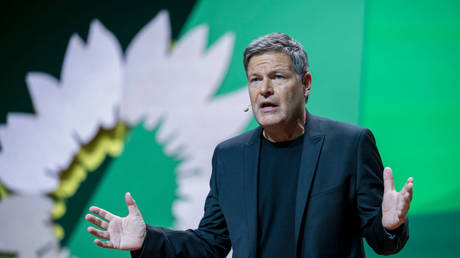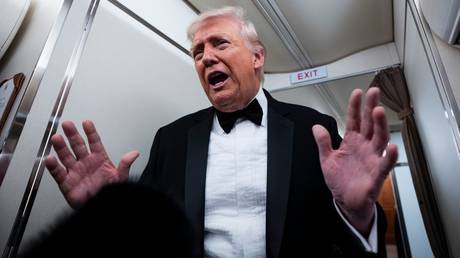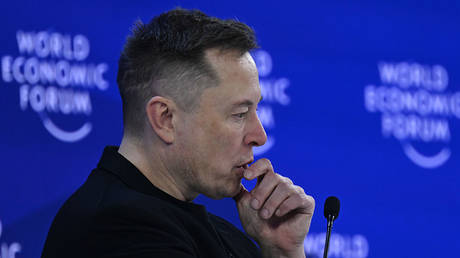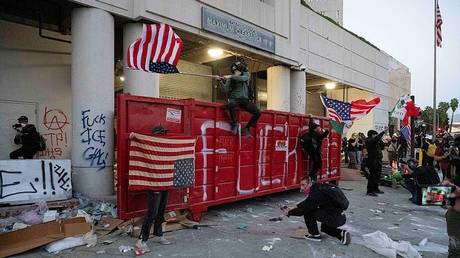
Robert Habeck has questioned whether the country’s “business model” can continue to work
Germany has been forced into a corner by underinvestment and policies pursued by other leading economies, Economy Minister Robert Habeck has said, after the central bank warned of a difficult year ahead.
In an interview with Bild newspaper published on Sunday, the politician, who intends to run for chancellor next year, insisted that Germany can turn the situation around.
“Our business model is really cornered. Will it no longer work? It would be too early for me to throw in the towel,” Habeck said.
The minister noted that Germany has failed to make sufficient investment in its infrastructure, tax system and workforce skills, resulting in a “negative impact” on its economy.
Germany is an export-oriented nation that needs open markets, Habeck argued, in reference to US President-elect Donald Trump’s threats of major tariff increases. Trump warned in November that he would impose steeper duties on foreign-made cars to protect US jobs, a move that would disproportionately affect Germany.
Habeck also pointed to Chinese-made electric cars flooding the EU market and causing “a big problem” for the German automotive industry.
Car manufacturing is one of the key drivers of the German economy, accounting for approximately 5% of gross domestic product (GDP).
The Munich-based Ifo Institute for Economic Research estimates that future tariffs could cost Germany €33 billion ($34.6 billion), and that exports to the US could fall by 15%.
READ MORE: Russian gas was ‘win-win’ – Merkel
Germany does have a problem, “but one that can be solved,” Habeck told Bild, without elaborating.
On Friday, the German central bank slashed its growth forecast for next year to 0.2%, from the 1.1% level it had predicted in June. The regulator also said it expects the economy to contract by 0.2% this year, having previously predicted modest growth of 0.3%.
It would mark a second consecutive year of decline, after gross domestic product shrank by 0.3% in 2023, according to the Federal Statistics Office, Destatis. The agency attributed last year’s contraction to persistent inflation, high energy prices, and weak foreign demand.
READ MORE: Economy minister seeking German chancellorship
A snap federal election will be held in Germany on February 23. Chancellor Olaf Scholz’s three-party coalition collapsed earlier this month after he fired Finance Minister Christian Lindner.




